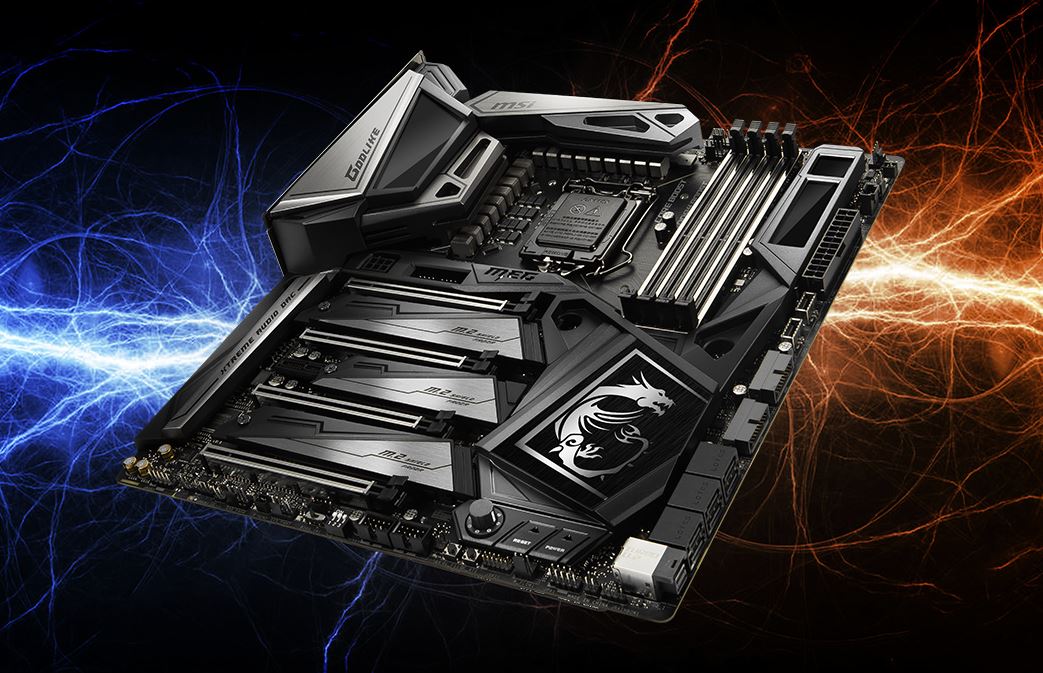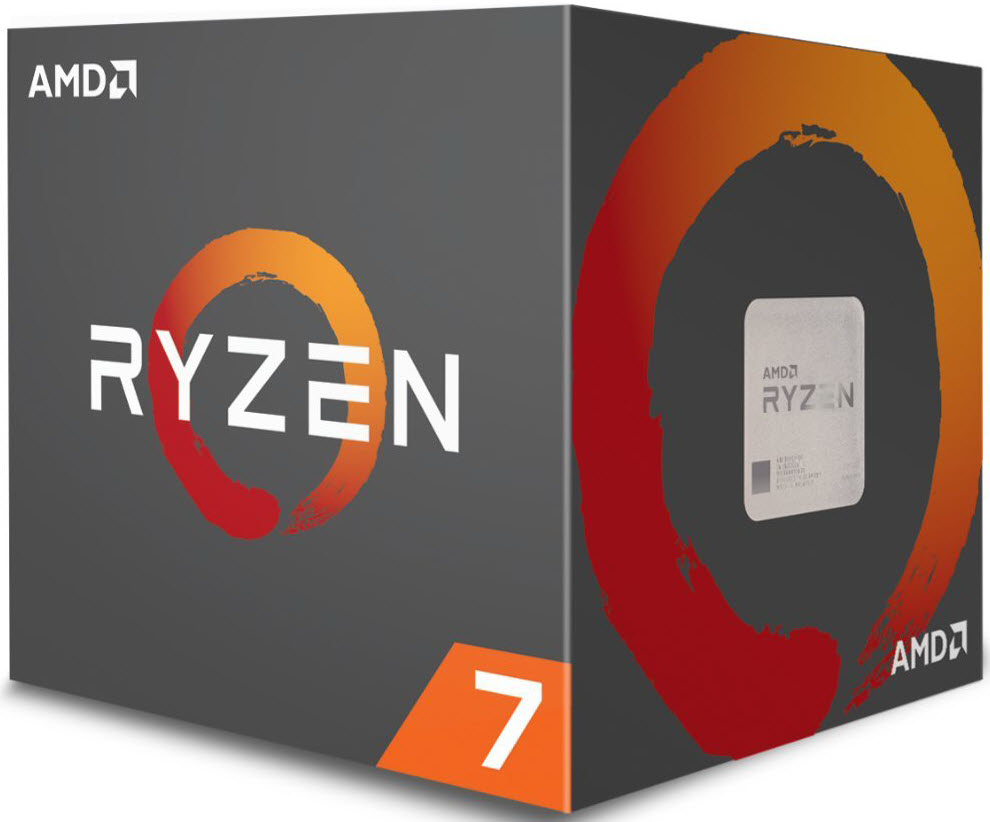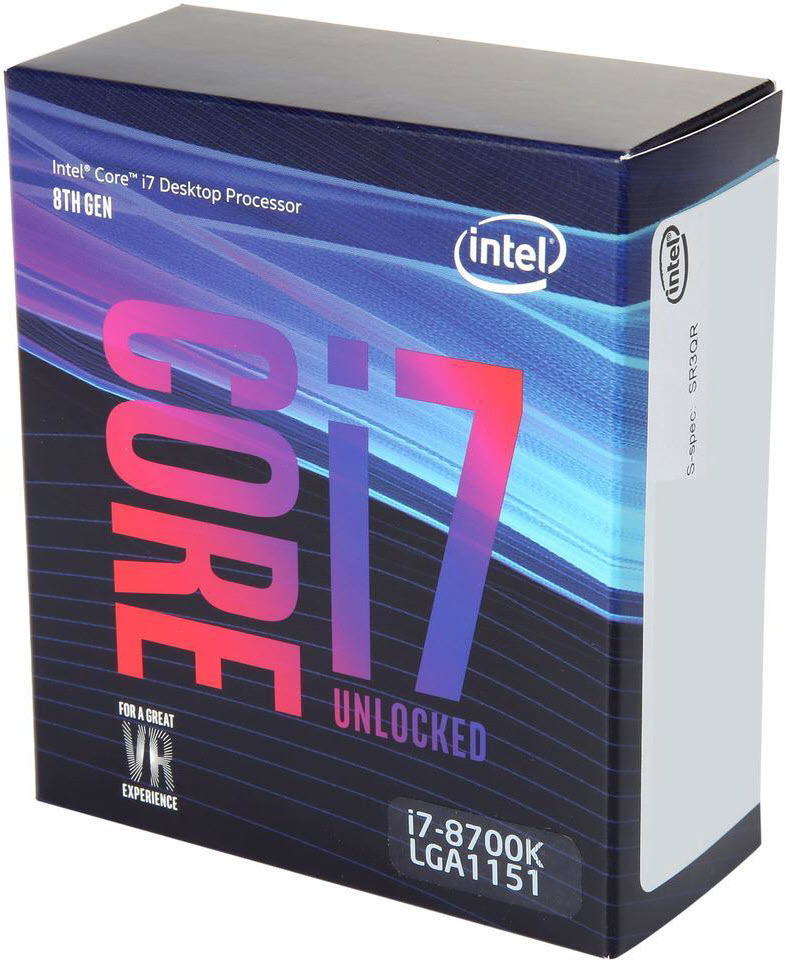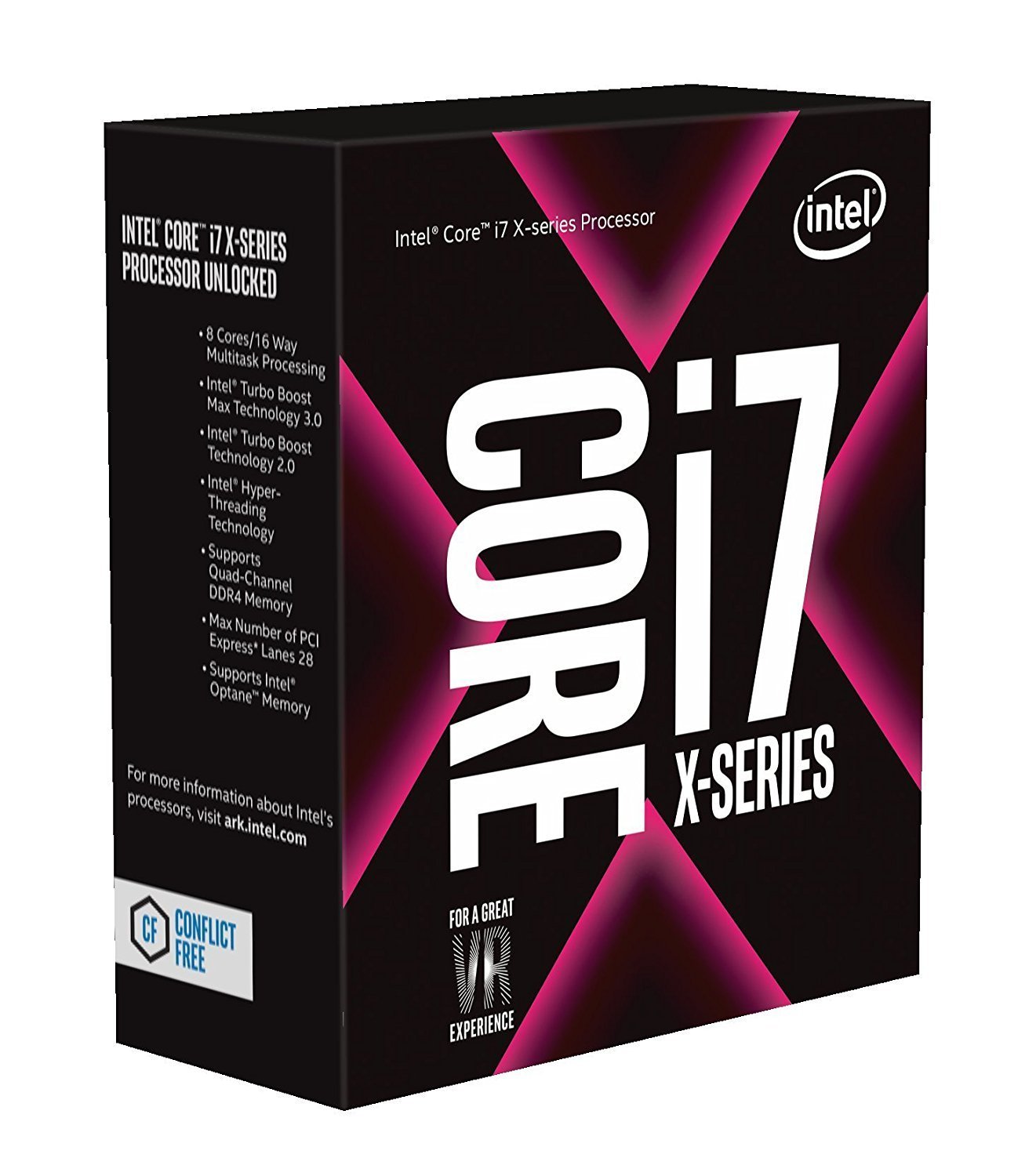Intel Core i7-9700K 9th Gen CPU Review: Eight Cores And No Hyper-Threading
Why you can trust Tom's Hardware
Power Consumption
Power consumption measurements are always a bit tricky. But as long as your 12V supply (EPS) readings, motherboard power supply sensor values, and voltage transformer losses plausibly coincide, everything is fine. Therefore, we're using pure package power to avoid possible influences from our motherboard. Results from the PWM controller are very reliable if you take them as averages over a few minutes.
We conducted this round of limited testing in our U.S. lab, and our results are not directly comparable with numbers from the Germany lab used in previous reviews.

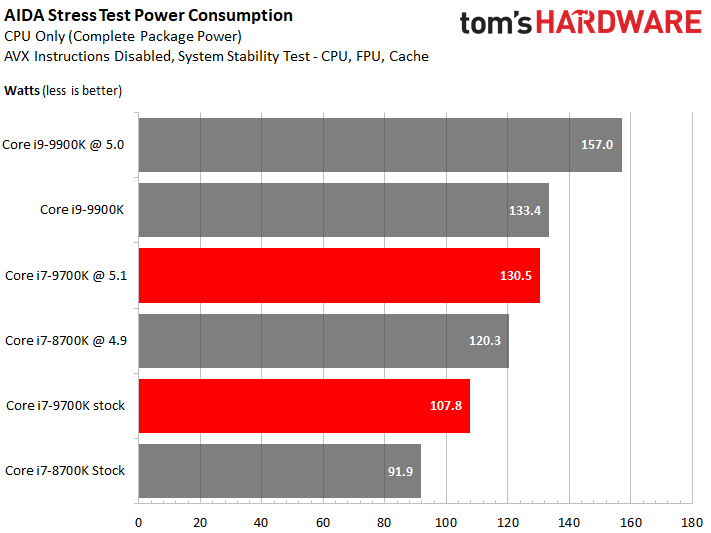
Core i7-9700K doesn't use as much power as the Core i9-9900K. It even draws less power overclocked than a stock Core i9-9900K in both non-AVX and AVX stress tests. Bear in mind that the overclocked Core i7-9700K and i9-9900K CPUs employ AVX offsets that step down to 4.8 GHz during our Prime95 stress test.
We did notice some errant power results from our Ryzen samples, possibly due to the motherboard's sensor loop. Until we determine the cause, we're withholding Ryzen power numbers. As you can see from our previous testing, AMD's Ryzen family generally uses a lot less power than Intel's comparable models.
Overclocking
We tapped Corsair's H115i v2 to test our Core i7-9700K sample. This liquid cooler afforded enough headroom to sustain a 5.1 GHz overclock with a 1.345V Vcore and an Auto Load Line Calibration setting. It kept the chip at 70-74°C during extended non-AVX stress tests. Folding in AVX instructions did lead to failed stress tests, even though there was thermal headroom to spare. To circumvent that issue, we set the AVX offset to -3, meaning the chip ran at 4.8 GHz during AVX-optimized workloads and 5.1 GHz in the absence of AVX instructions. We maintained a temperature of 88-91°C during three hours of Prime95 using those settings.
According to Silicon Lottery's latest statistics, 28% of Core i7-9700Ks the company tested can reach 5.1 GHz or greater (though it only uses a -2 AVX offset and a higher 1.362V Vcore setting). As of 10/28/18, Silicon Lottery reports that all Core i7-9700Ks it tested can maintain 4.9 GHz or greater. Expect similar results from your sample, provided you score a nice chip.
MEG Z390 Godlike
We're using MSI's MEG Z390 Godlike as our test platform for all Intel processors. This pricey board sells for $600, but has the power delivery subsystem to support aggressive overclocking.
Get Tom's Hardware's best news and in-depth reviews, straight to your inbox.
MSI's motherboard imposes a 100.8 MHz base clock. Its extra 0.8 MHz serves to push overclocks even harder, though our motherboard review team would probably call it cheating. Consequently, our 5.1 GHz overclock is actually 5.14 GHz. Stock frequencies aren't spared, and there is no way to adjust the BCLK down to remove MSI's self-awarded advantage. Meanwhile, we are waiting on a solution from MSI that should allow us to dial in an exact 100 MHz BCLK.
It's also noteworthy that AMD has launched its Ryzen 3000-series processors. The updated Ryzen line-up employs a smaller 7nm process that should confer power and price benefits. It'll also wield the new Zen 2 microarchitecture, which is expected to boost performance while Intel remains mired in a derivative of the seven-year-old Skylake design. These chips have now taken our Best CPUs list by storm, so be sure to head there for a list of the latest leading processors.
The MSI MEG Z390 Godlike sits at the top of MSI's motherboard hierarchy. It has a decked-out 18-phase power delivery subsystem that's designed to squeeze every drop of performance out of Intel's new processors. It also comes with a few nifty accessories like an M.2 PCIe riser card and an HDMI streaming card.
Comparison Products
| Test System & Configuration | |
| Hardware | Intel LGA 1151 (Z390)Intel Core i9-9900K, i7-9700K, i5-9600K, i7-8700K, i5-8600K, i5-8400MSI MEG Z390 Godlike2x 8GB G.Skill FlareX DDR4-3200 @ DDR4-2667 & DDR4-3466Intel LGA 2066Intel Core i9-7820XMSI X299 Gaming Pro Carbon AC4x 8GB G.Skill FlareX DDR4-3200 @ DDR4-2666, DDR4-3200AMD Socket AM4 (400-Series)AMD Ryzen 7 2700X, Ryzen 5 2600XMSI X470 Gaming M7 AC2x 8GB G.Skill FlareX DDR4-3200 @ DDR4-2933All SystemsEVGA GeForce GTX 1080 FE 1TB Samsung PM863SilverStone ST1500-TI, 1500WWindows 10 Pro (All Updates) |
| Cooling | Corsair H115i |
MORE: Best CPUs
MORE: Intel & AMD CPU Benchmark Hierarchy
MORE: All CPUs Content
Current page: Overclocking, Power and Test Setup
Prev Page Two More Cores, Four Fewer Threads Next Page VRMark, 3DMark and AotS: Escalation
Paul Alcorn is the Editor-in-Chief for Tom's Hardware US. He also writes news and reviews on CPUs, storage, and enterprise hardware.
-
rantoc Considering the amonth of security flaws that have been found lately the lack of HT could become a blessing in the end!Reply -
logainofhades I would like to see a locked at same clocks review, for these CPU's. It seems you really have to push Intel, to handily surpass AMD. It reminds me of the FX vs Sandy bridge days.Reply -
ingtar33 Well I just went from an I5-4690K to an AMD Ryzen 7 2700 after seeing the price of intel's current lineup, and knowing that Ryzen2 is coming in another 6mo or so. Personally I thought it was a no brainer, since the 7 2700 could be had for $260, mine is in an mitx build right now with a little Kracken M22 cooling it, and as I type on it it's currently plugging along at 4.2 ghz with DDR4 3600 ram in it.Reply
What point am I making? Well, the motherboard, cpu cooler and cpu combined were cheaper then this i7 in this review. chew on that. And remember that ryzen2 should be out sometime in the spring of 2019, and it will be completely compatible with everything I just purchased while being on par with or even faster then this last intel chip.
Now that you've chewed on that for a bit, ask yourself "why did THG stamp an editor approval on this chip again?" We probably should, "Just buy it," I guess, and not ask so many questions. -
ingtar33 Reply21463450 said:I would like to see a locked at same clocks review, for these CPU's. It seems you really have to push Intel, to handily surpass AMD. It reminds me of the FX vs Sandy bridge days.
except that's not what we're seeing. 105.5 fps vs 94.9 fps is 10.4%, a 10.4% improvement for the 8c16t intel core i9-9900k. yet the chip is running at 5.0ghz vs the 8c16t ryzen 7 2700x at 4.2 ghz, which means the intel is clocked about 19.0% faster then the AMD to get a 10.4% lead in FPS.
These Intel cpus DO NOT have higher IPS then Ryzen. If anything, assuming there isn't some sort of scaling issue in the testing suite, this seems to indicate that intel's cpus have moderately less IPS then AMD Ryzen+ and are currently getting by with clock speed alone. Which means this is as far away from sandy bridge vs fx then we could get. Sandy bridge didn't just clock to 5ghz, but was sporting almost 40% better IPS then Piledriver FX cpus. -
InvalidError Reply
You are getting product and code names confused. Ryzen 2 (Zen+) has been out for over six months already and your new Ryzen 2700 is one of those. Ryzen 3 (Zen 2) is what's coming out in 2019 on 7nm.21463471 said:And remember that ryzen2 should be out sometime in the spring of 2019 -
adam.oakes83 INGTAR33, you can't just make up results and claim tReply
It to be proven actuate by doing a math equation. 99.99% of the internet making claims with no source to back it up. -
TerryLaze Reply21463503 said:except that's not what we're seeing. 105.5 fps vs 94.9 fps is 10.4%, a 10.4% improvement for the 8c16t intel core i9-9900k. yet the chip is running at 5.0ghz vs the 8c16t ryzen 7 2700x at 4.2 ghz, which means the intel is clocked about 19.0% faster then the AMD to get a 10.4% lead in FPS.
These Intel cpus DO NOT have higher IPS then Ryzen. If anything, assuming there isn't some sort of scaling issue in the testing suite, this seems to indicate that intel's cpus have moderately less IPS then AMD Ryzen+ and are currently getting by with clock speed alone. Which means this is as far away from sandy bridge vs fx then we could get. Sandy bridge didn't just clock to 5ghz, but was sporting almost 40% better IPS then Piledriver FX cpus.
This only works if you don't know CPU and GPU utilization.
Looking at a lot of gaming benchmarks even the i3/pentiums/2400g etc are only 10-20% below the 9900k because gaming benchmarks are made to push the GPUs and not the CPUs so the GPUs bottleneck way before the CPUs,and even if they don't, scaling in games means that slower CPUs can just use more threads to get to the same FPS.
Look at CPU benchmarks the deficit the ryzen CPUs have there is still there in gaming it just shows in the utilization where the ryzen cpu will have 30-40% more utilization (2700x vs 9900k) . -
Dantte PCgamers did some testing delidding a 9900K and determined that the solder TIM does NOT provide any additional cooling when compared to a 8700K because the die is much thicker (about 32% thicker) and hampers the transfer. Also the solder is too thick as well.Reply
They tested and proved this theory by delidding and replacing the solder with conductonaut and got a 8C decrease in temps. Then they lapped the die -.15 and -.20mm and retested which came back with even lower results. -
t99 Glad I went with a 2600 for only 150$ new and just OC if needed. Basically a 2600x and the avg is within 20% of an OC'd 9900k and 10% of 8600k.Reply
When you account for the difference in cooling and motherboards as well you can get a 2600 + 1070ti for price of a 9700k.
Maybe we will see larger gaps with the new intel when they test 1080p on a 2080. So glad I didnt wait and go with one of these
